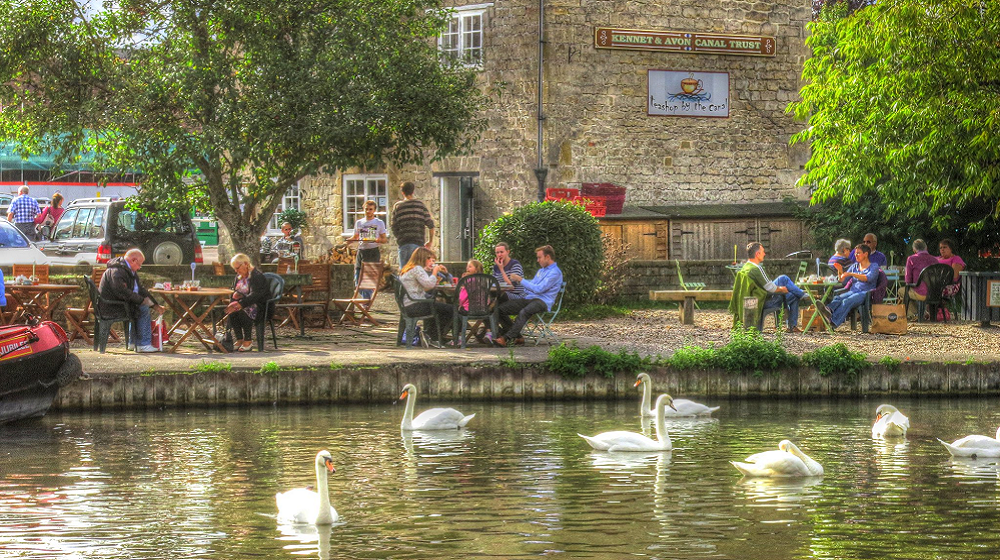Green candidate for Reading West and Mid Berkshire
Our Democracy Reporter, Niki Hinman, has invited all the candidates in the Newbury and Reading West & Mid Berkshire to answer her questions. We will be publishing the candidates responses as they are received.
Carolyne Culver, 51, is a West Berkshire councillor for Ridgeway ward, and is fighting the neighbouring seat of Reading West and Mid Berkshire to her partner, also a Green candidate for Newbury.
She is a freelance consultant for a community interest company, delivering nature-based solutions to climate change and also an exam invigilator at St Bart’s school in Newbury.
She spoke to our local democracy reporter Niki Hinman.
1: What made you run for office?
I believe in social and environmental justice. For three decades I have campaigned for equality, justice and peace, and to tackle climate change and protect and enhance biodiversity. I have been a councillor twice – in my home town of Aldershot, and for the past five years in Ridgeway ward in West Berkshire where I have lived for 17 years. I would like to participate in the Westminster decision making process, to create laws that make people’s lives better and protect the natural world.
2: Do you have family/partner and what do they think of you running for Parliament?
My partner Steve Masters is Parliamentary candidate for Newbury. We support one another, bounce ideas off each other, and have a laugh too. Maybe we’ll have a contest to see who can get more votes!
3: When did your interest in politics take hold?
I got involved in politics in the early 1990s when I was at sixth form college. I was opposed to the poll tax and Section 28. When I went to university I got involved in a lot of campaigns including protecting the maintenance grant and opposing tuition fees, and following my history degree I was elected as a full time sabbatical officer at the students’ union.
4: Why do you think people will vote for you/your party?
People will vote for us for the following reasons: They are concerned about social and environmental justice, about inequality, lack of affordable housing, the cost-of-living crisis, climate change, and biodiversity loss. People who know our reputation as hard-working councillors will vote for us. During the cost-of-living crisis we helped set up community cafés, and we still support them now. We were out on the streets helping people during the flooding and sewage contamination crisis. We’re visible in the community, responsive, not afraid to get our hands dirty, and dedicated to holding the council to account on behalf of residents.
5: Beating the campaign trail means you are speaking to people on the doorstep. What are they saying to you?
Lifelong Conservative voters have been phoning and emailing to say they are going to vote for me. When I was first elected to West Berkshire I flipped a 66 per cent Conservative majority and turned it into a 62 per cent Green majority. In 2023 I was re-elected with 69 per cent of the vote. Since then, disillusionment with the Conservative government has deepened, so I suspect I will pick up even more votes from Conservatives.
Voters disillusioned with Keir Starmer and his endless policy U-turns are supporting me. They don’t trust him. He’s abandoned all the things he said to get elected as Labour leader, so why should voters trust him? This week someone told me they are ‘scared’ of Keir Starmer because he seems incapable of tolerating alternative opinions within the Labour Party. Whatever one thinks of the Conservatives’ record in government, they are a broad church and tolerate difference of opinion.
This is not 1997. I was not a fan of Tony Blair, but at least he had a vision and there was a sense of hope. Starmer is an empty vessel.
6: You are representing a minority party – what does a vote for you mean?
Five years ago we didn’t have any local councillors in West Berkshire, and now we do. We are going from strength to strength. It’s a long hard journey. We win people over conversation by conversation. If we had proportional representation we would have around 15 per cent of the vote across the country, according to the lastest polls. That would give us 90 MPs in the House of Commons and we would have a big influence on decision making.




